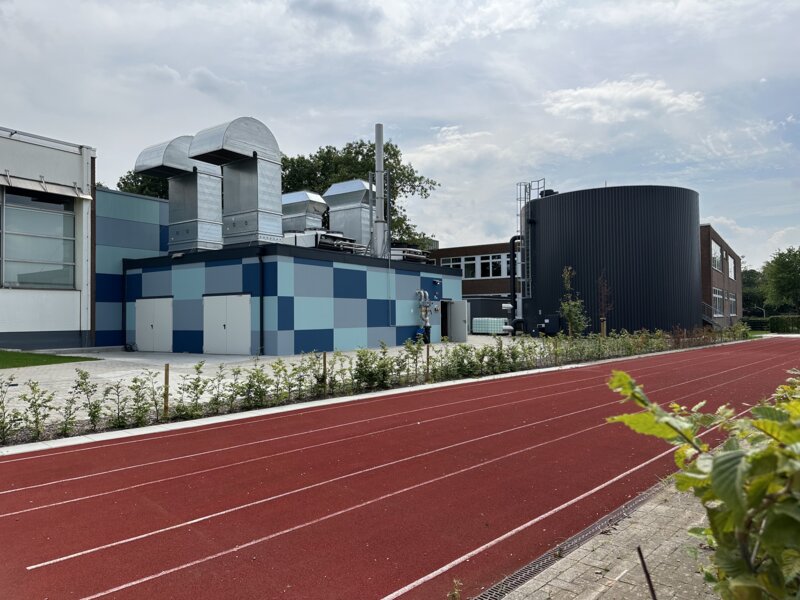A small town in western Lower Saxony is increasingly relying on green energy from biogas.
A 2.7 km long micro gas pipeline delivers green biogas directly to the city center.
Facts & figures

In Freren, these include three schools, an outdoor swimming pool, a retirement home, a fire department, a sports hall, an indoor play paradise including a restaurant and two apartment blocks, each with eight residential units. These properties need to be supplied with thermal and electrical energy both in summer and winter, and in a reliable, economical and environmentally friendly way.
The solution: biogas
A good two kilometers from the center of Freren, MW Bioenergie GmbH & Co. KG operates a biogas plant under the management of managing directors Florian Wagemester and Franz Meyer. This plant supplies green biogas directly to the city center, where the aforementioned properties are located, via a 2.7 km long micro gas pipeline. The destination of the micro gas network is the newly built energy center, directly next to the local secondary school.
One avus 1000plus (1,000 kWel/th) and one patruus (540 kWel/th) from 2G have been installed in two concrete sound enclosures. The CHP plants use the biogas from the micro gas network and generate electricity for the public electricity network and heat for the company's own local heating network, which is connected to the properties. All in all, around 2.6 million kWh of green heat are provided to consumers every year.
The plants only run when the electricity demand in the network is very high, so that the energy generation balance is extremely economical and environmentally friendly.
In order to maintain constant delivery readiness, the energy center is equipped with a hot water buffer tank. With its volume of a good 600 m³, the tank can supply all properties with heat independently for 1.5 to 3 days. In addition, the CHP plants will be equipped with the ability to operate in island mode in the future, so that even if the public electricity network fails, the systems ensure the electrical and thermal energy supply synchronously with the consumer.
Florian Wagemester, operator and planner of the entire energy center and the heating network, is enthusiastic about the flexible and uncomplicated cooperation with 2G: "The digitalization of the processes and communication with 2G has made the planning, construction and installation of the energy center very efficient and therefore also pleasant."


























